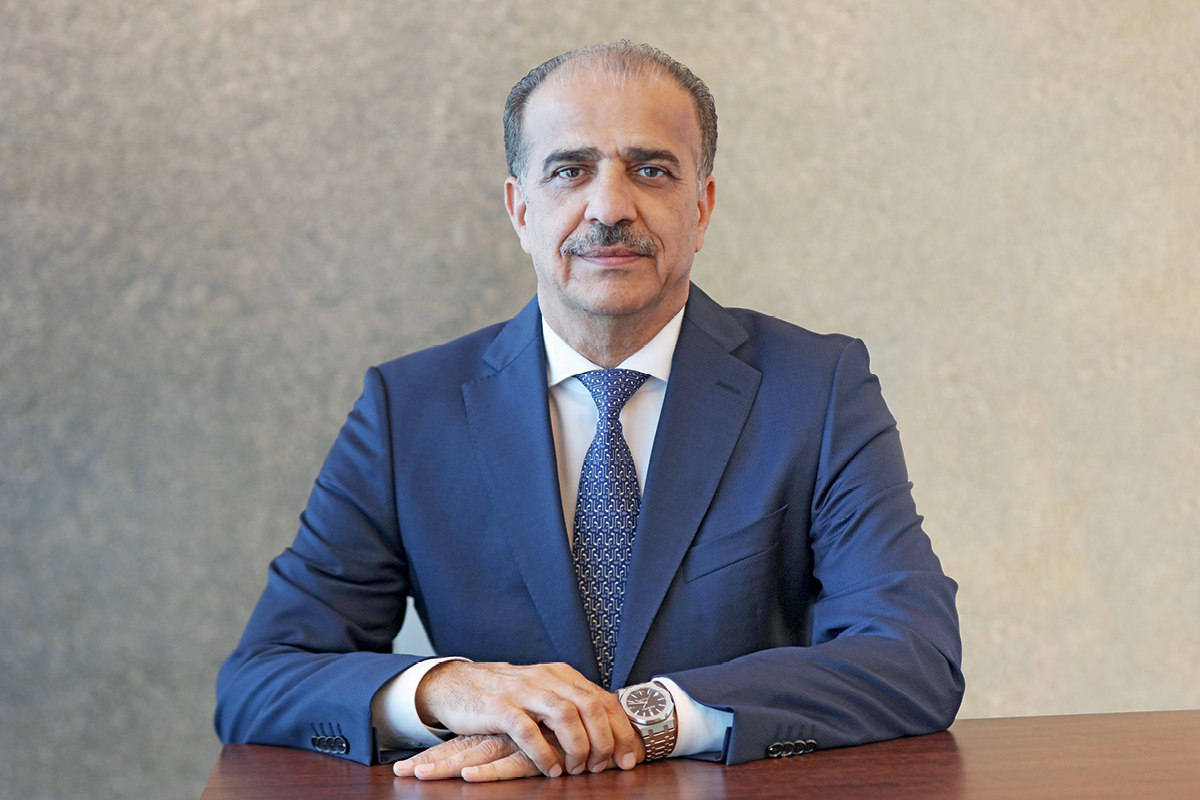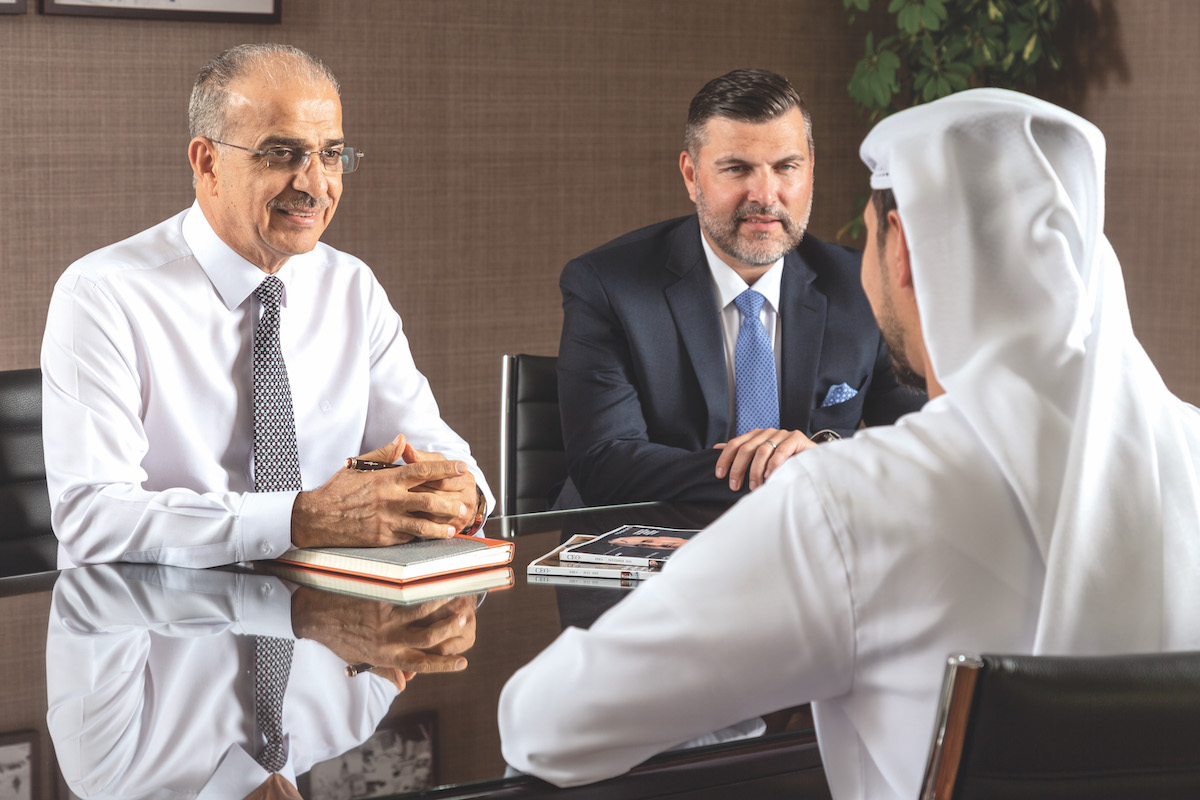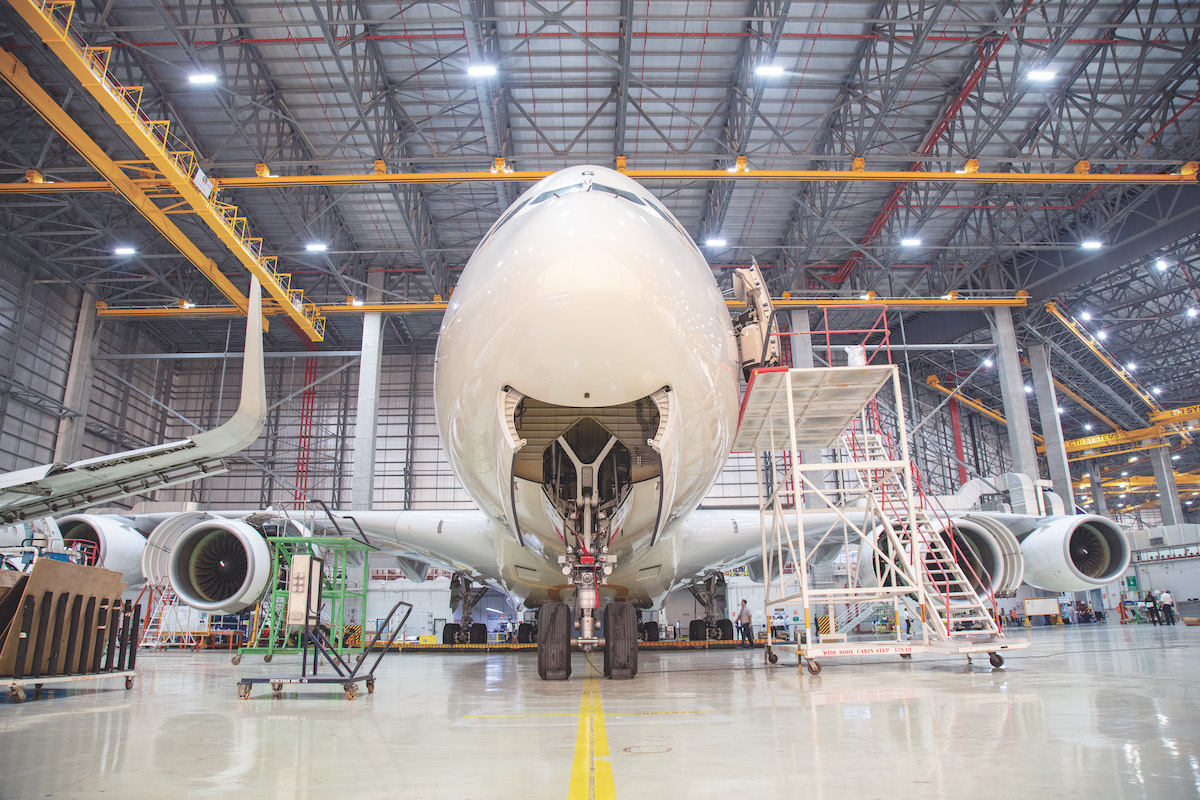The spectrum of emotions people invest in commercial aviation is infinitely wide, spanning from the glee you feel when you touch down at an exciting, new destination to the grief of the latest announcement about a preventable accident.

It takes hard, meticulous work by thousands of professionals to keep spirits aloft in this risky yet exhilerating industry – to suspend the disbelief of millions of people that our bodies can be safely carried across the world in an aluminium tube.
A few of these professionals get most of the attention – the pilots, the designers and the executives. What often goes unrecognised by the public is the work of engineers who maintain and repair aircraft on the ground so that they can spend more time in the sky.
One person who does appreciate this side of the industry, however, is Abdul Khaliq Saeed, the CEO of Etihad Engineering – the Middle East’s largest maintenance, repair and overhaul (MRO) service provider for commercial aircraft.
“Safety is not just something we talk about,” Abdul Khaliq says. “It’s built into our mindset. In everything we do, we have an echo in our minds saying ‘safety, safety, safety’.”
Abdul Khaliq oversees a team of more than 2,000 professionals based in the Abu Dhabi facility, all of whom are united in their focus on delivering industry-leading aircraft maintenance and engineering solutions, not only to Etihad Airways but also to other top-tier airlines based around the world.
After studying aeronautical engineering in Scotland, a young Abdul Khaliq returned to the Middle East in 1980 to embark on a career that would take him to the upper levels of the region’s aviation industry. “Once I got my hands on aircraft, I just worked my way up step by step,” he says.
He spent 30 years at the Bahrain-based Gulf Air before taking senior positions at Jet Airways and Mubadala Aerospace, and then chief executive positions at Abu Dhabi Aircraft Technologies and the Abu Dhabi-based Turbine Services & Solutions. These experiences would prepare him for the challenges of his current role.
“When I was asked to join Etihad Engineering in September 2017, I needed to make some quick and tough decisions in order to bring the company back on track with the right culture,” he says.
“The journey was challenging and exciting, and within one year, we were able to turn the company around, from both the operational and financial perspectives, with record profits reported in 2018 and 2019.”

Pioneering technology
The company has come a long way under Abdul Khaliq’s leadership. Last October, Etihad Engineering received the MRO Service Provider of the Year award at the Aviation Business Awards 2019 in Dubai, thanks in part to its recent unprecedented growth.
In 2018, the company exceeded its financial targets and recorded the highest number of profitable man-hours in its history. “It is important for us to focus on bringing our organisation into the future. We are now looking into further growth as we develop and move into 2020,” Abdul Khaliq says. “We have a clear path for achieving the desired growth.”
Part of the plan is to continue supporting Abu Dhabi’s Economic Vision 2030, which aims to build on the Emirates’ “existing aircraft maintenance business to become a world-class player in the maintenance, services, repair, overhaul, and parts manufacturing segments”.
Etihad Engineering is committed to and fully aligned with this vision, particularly by driving innovation. “If you look into our business, we are built around innovation. If you look into what systems these aircraft use today, they are among the most sophisticated technologies in the world. So, for us to deliver what we need to deliver to our customers as well as gain the trust of new customers, we need to have the latest innovation and technology built into our operation,” Abdul Khaliq says.
Etihad Engineering is consistently upgrading its capabilities to include new aircraft such as the Airbus A350 and investing in innovative systems and technologies including automated tool management and robotics in its maintenance and supply chain, as well as the development of intelligent cabin solutions.
The company recently established a 3D workshop, which leverages 3D printing technology to manufacture aircraft cabin parts, models, and prototypes. The lab is the first of its kind in the region, and it has already begun delivering parts to customers. Moreover, Abdul Khaliq has overseen trials to use drones to inspect certain aircraft.
“New technologies bring us efficiency and cost savings, while at the same time ensuring that we are not left behind. Our industry demands innovation,” he says.
“New technologies bring us efficiency and cost savings, while at the same time ensuring that we are not left behind.”

Turning challenges into opportunity
Another thing the industry demands is clear communication within the workforce – something that takes conscious effort to maintain in a company with thousands of employees from more than 60 countries. Abdul Khaliq has managed to turn this diversity into an asset by promoting a culture of familiarity, unity, openness and transparency.
Every week, he takes a walk through the hangars where his employees work, looking for ways to make their daily lives better. “We have discussions about how we can help each other, and you’ll be surprised by the sort of ideas and questions that come up – they’re so easy to address and implement,” he says.
“It’s important for me to understand the employees on the floor because they are the ones working with their hands on the aircraft.”
This close teamwork has enabled Etihad Engineering to pull off remarkable feats. For example, last year, they had a customer commission the world’s first 12-year check on an Airbus A380. “No-one had done this before. It was a challenge, but at the same time, also an opportunity to be the first in the world,” says Abdul Khaliq
Etihad Engineering was given 120 days to complete the project. “We delivered it in under 100 days. The customer was very happy, given that the aircraft was able to re-enter service ahead of schedule, and it was flying smoothly without any hiccups.
“We turned this challenge into an opportunity and demonstrated that we can provide a service no-one has ever had before. It was the perfect way to enter 2020.”


